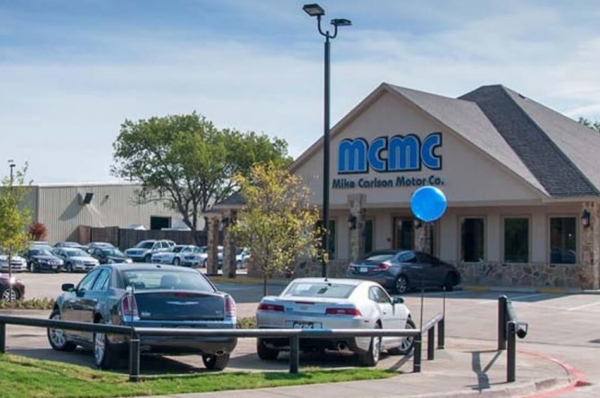Educate Customers to Keep Collections Coming
Collections and cash flow remain critical in the buy-here, pay-here business and even more so in the era of COVID-19.
Ray Lloyd, of Mike Carlson Motor Co. in Texas offered dealers collection survival tips during a webinar with Ignite Consulting on April 7.
The fundamentals of liquidating accounts do not change in this environment, Lloyd said. Dealers need to get information about why customers are behind – even if that is because of unemployment. Confirming and validating that information will help with the collections process.
Lloyd prefers the customer provide a copy of the letter that confirms unemployment status with the weekly benefit amount.
“Typically, what we tell customers is that we’re going to be flexible with them for payment arrangements,” Lloyd said.
That means setting payments on the day they receive the unemployment benefit, even if it’s different than the typical due date.
Collectors must keep in mind the additional $600 unemployment benefit provided by the federal CARES relief package will also help customers.
Lloyd and his account managers also educate the customer on services offered through the state’s unemployment website.
“Learn it yourself and get it into the hands of your people,” he said.
Lloyd downloads tutorials from the state site that explain to his employees the process customers will have to go through.
Show the customers the different forms of state relief they qualify for, from food programs to local rental assistance, Lloyd said.
“Let them know about that and what else is available (such as) the SNAP (Supplemental Nutrition Assistance) Program and the Family First Act,” Lloyd said. “We send the links to customers in emails and text messages.”
Richard Hudson, managing partner of Ignite Consulting, praised the idea of helping customers find relief programs.
“What I’m seeing in the data is there are a lot of people that are having to reach out to programs that they may never have had to reach out to before,” Hudson said. “They may not even know where to begin.”
Lloyd said by helping customers with their other needs, it helps them continue making the car payment.
He added that some customers initially refuse to go on unemployment, but Lloyd tells them it’s like car insurance when you have an accident. You wouldn’t refuse car insurance to fix your car and unemployment insurance is no different, Lloyd said.
“You’re already paying into this program,” he said. “This is the time you need to take advantage of it.”
Giving account mana gers this type of information to share with customers gives them more confidence on calls, Lloyd said.
When the shelter-in-place orders started it was a shock. Ironically, when that happened, Lloyd saw an increase of payments coming in.
The dealership offered a deferral program where, if a customer made a payment, the dealership would defer a payment. Of the 399 customers who got a deferral, only six failed to make the next payment, Lloyd said.
“I think we were pretty successful with that,” he said.
Then came the “lull” period, where people thought the shutdowns would be brief.
“It hasn’t happened that way,” Lloyd said.
Customers who were off work hadn’t yet filed for unemployment, which they should have done right away, he said.
“What we need to do is get them out of the lull and into action,” Lloyd said.
Hudson said dealers have a part to play. They can’t sit around waiting on customers to make a move. The collectors have a role in this, he said.
Lloyd even has a contest where he collects all the weekly benefit amount statements that his collectors get from their customers. He puts them into a basket and draws one out and that employee gets an additional incentive.
Lloyd also sends out texts three times a week, letting customers know they are working with them, as long as the customers share information with them.
He adds that it doesn’t mean that things will go smoothly through this downturn.
“I just had a meeting with my group,” Lloyd said. “We are going to get beat up more than we normally do.”
Collectors should give customers guidance and help them to get any other resources available to them, while making sure they understand they still have a car payment.
“Maintain the expectations,” Lloyd said, “The car is one of the most important things they have. It’s food, shelter and then the car. The car has to be the next in line.”
He added there is no reason to argue. This downturn is like others, just a little more hectic.
“On the other hand, in 2008 we didn’t have this $2 trillion assistance package,” Lloyd said. “We were dealing just with unemployment. It was much more difficult to deal with that.”
Ignite’s Steve Levine also urges dealers to post information on their establishments detailing the things they are doing to keep employees and customers safe.
“Make sure you have your cleaning materials out and visible,” he said. “Make a show of it,. There is a lot of fear out there.”
Showing that you’re keeping things clean is a priority and will comfort guests and employees, he said. It’s important to have cleaning supplies out and a schedule for cleaning..
Ignite Consulting also suggests posting this information on your website and documenting that you are doing this to protect the business.
